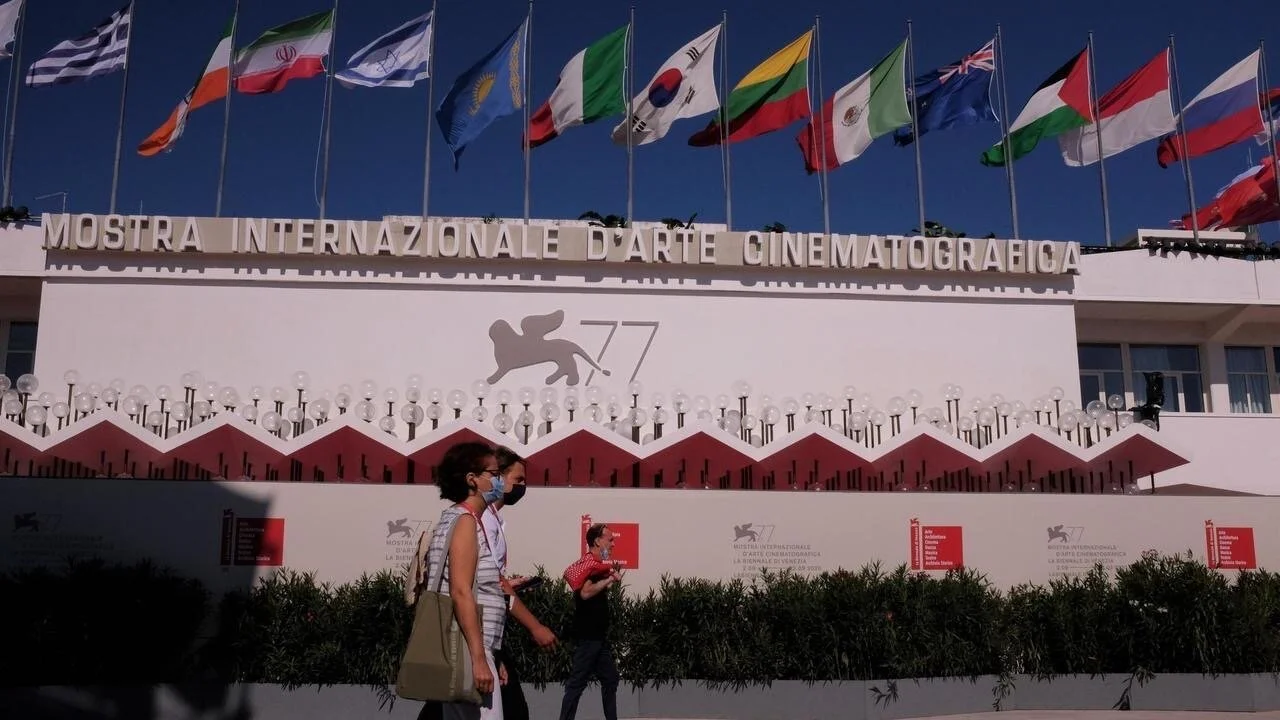Some of the big players from the US and Asia were missing from the line up, giving room for smaller international productions to shine and debut. The red carpet was shortened, the press’ presence was decreased, making everyone just a bit more relaxed. This year’s jury was headed by Cate Blanchett, but it was really Tilda Swinton who made the news, showing off custom made golden Venetian carnival masks during each of her red carpet walks, as she was awarded for lifetime achievements. Some of the celebrities decided to re-use their gowns to promote fashion consciousness and there was an overall aura of people being more self-aware and considerate than pre-COVID.
Among the films presented was the newest picture by Malogrzata Szumowska, co-directed with a Polish cinematographer Michal Englert, “Never Gonna Snow Again”. A debut of hers at the festival, after having previously won in Berlin. The film was nominated for a Silver Lion for Best Director and a Golden Lion in the main competition, and was submitted as the Polish candidate for this year’s Oscar race. Even though it caused a healthy amount of buzz throughout the festival, it only went on to collect excellent reviews from international press, as well as a Special Mention for treatment of environmental issues within the film.
The metaphysical story of a Ukrainian masseuse, who arrives at a suburban gated community and changes the lives of it’s inhabitants. Each family being a story of it’s own, intertwined through a mysterious man, Zenia, who’s life story is revealed piece by piece as the plot unfolds. The picture presents a contrast between a humble and simple Warsaw landscape and the rotten rich suburbia, which are made fun of with witty and slick satirical situational humor. While I loved the motif of hypnosis and ethereal sub-conscious powers, along with the adroit cinematography of Englert showing portrait shots of the lead actor, which brought about much serenity and mood, there was some plots in the film which were left unnecessarily developed and unfinished. My main concern about the reception of the film is that it might not be fully understood by people who are not coming from Slavic countries, even though it was appreciated by western press. There are subtleties included about the Polish-Ukrainian relationship which could be overlooked or underrated by otherwise unaware audience. The main character hypnotized me with a combined simplicity of his needs and intentions with an ocean of a mind and emotions that contrasted with the rich, shallow and self-absorbed families. Re-appearing themes of the environment and a portrayals of family issues found a natural way to enter the discussion within the film. If not for all that, the film’s title should be a riddle tempting enough to tune in.
